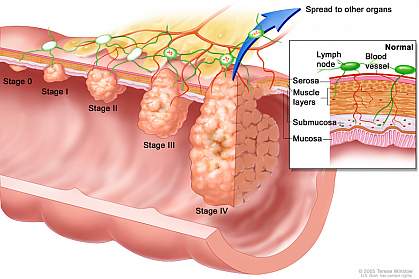Colon Cancer Awareness
“Five studies have established that gastroenterologists are more effective than surgeons and primary care physicians at preventing colorectal cancer by colonoscopy (CRC).”
Overview
Colon cancer affects more than 140,000 Americans annually.
It can affect anyone, even if there’s no family history of it. Older people are more at risk, which is why we recommend screening every ten years starting at the age of 45.
Screening is the most effective way to prevent colon cancer from developing or finding cancer in an earlier stage. Colon cancer does not have symptoms until late stages.
*March is Colon Cancer Awareness month. At NCG, we wear blue weekly throughout the month to raise awareness.
The Facts
Colonoscopy is the most effective procedure for finding adenomatous polyps if the adenoma detection rate is high enough; according to the studies adenomas should be detected at least 25% of the time.
o In 2021, we have had an adenoma detection rate of 50%. For the past 8 years, our adenoma detection rate is 47%.
According to the recent studies, inadequate preparation should not occur in more than 15% of colonoscopies.
o Patients at North Country Gastroenterology (NCG) have an inadequate prep rate of only 7%.
Cecal intubation should happen in at least 90% of colonoscopies and photographic documentation in 95%.
o At NCG we reach cecal intubation in 100% of colonoscopies and every patient goes home with photographs of our findings.
Perforation should occur in less than 1/1000 for screening procedures and 1/500 for all other exams.
o Out of a total of approximately 15,625 cases, we have only had 2 perforations; both with polyp removal and none for screening purposes.
Withdrawal time of the colonoscopy should be greater than or equal to 6 mins.
100% of colonoscopies done at NCG take greater than 6 mins to withdraw. The average withdrawal time at NCG is more than 10 minutes.
Sessile polyps less than 2 cm should be removed endoscopically in more than 90% of cases.
100% of those polyps have been removed at the time of endoscopy here at NCG.
A second look in the colon via forward view or retroflex view should be done in the majority of screening cases, as this can increase adenoma detection rates thus decreasing colorectal cancer.
100% of colonoscopies performed include a second look at the colon.
The colonoscopies performed at NCG are 60% more protective for colon cancer and 100% more protective from CRC death, if the other practice has an ADR of 30!
North Country Gastroenterology offers colonoscopies and other services to patients in the Littleton, Lancaster, Woodsville, Plymouth, and North Conway areas.
References
i Rex, Douglas K. MD, Schoenfeld, Philip S. MD, MSEd, MSc (Epi), Cohen, Jonathan MD, Pike, Irving M. MD, Adler, Douglas G. MD, Fennerty,
M. Brian MD, Lieb II, John G. MD, Park, Walter G. MD, Rizk, Maged K. MD, Sawhney, Mandeep S. MD, MS, Shaheen, Nicholas J. MD, MPH,
Wani, Sachin MD, and Weinberg, David S. MD, MSc. (2014). Quality Indicators for Colonoscopy. The American Journal of Gastroenterology,
110: 72-90. Doi 10.1038/ajg.2014.385


